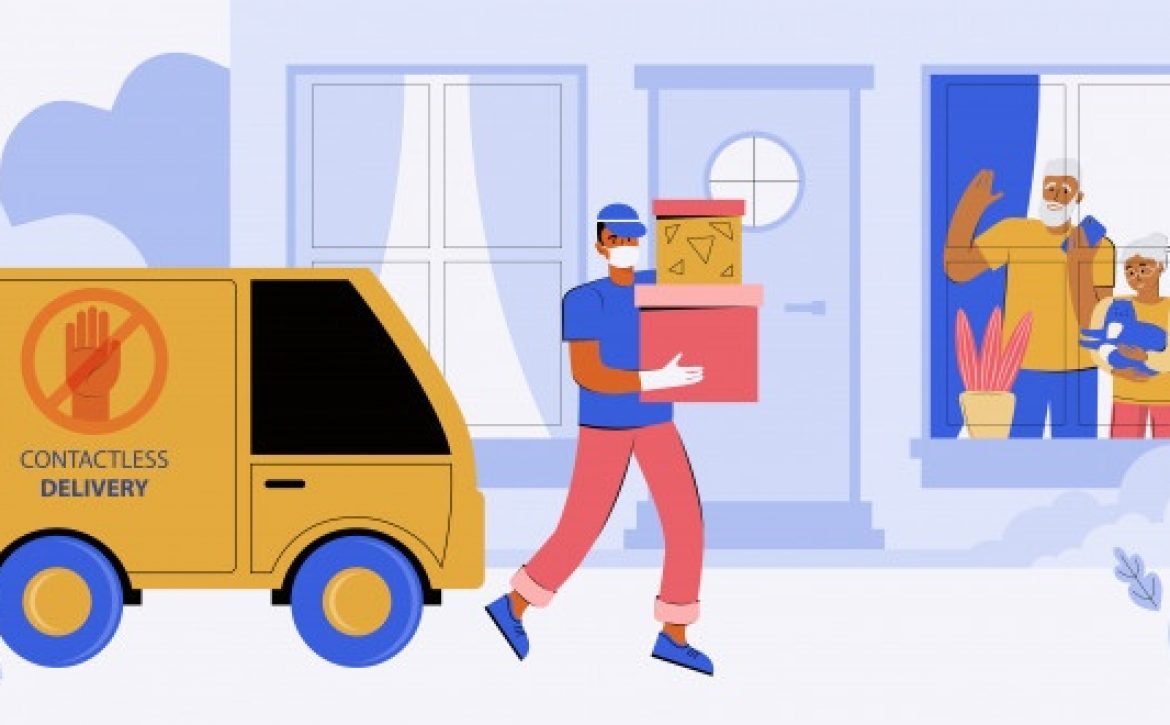Dubai, is the city of dreams. Where innovation intersects with ambition and opportunities abound. Are you an aspiring entrepreneur who wants a piece of the pie? Looking to conquer the virtually limitless market? Or perhaps you want to take your business to the next level, reaching out and touching the lives of your customers in the digital realm?
In a landscape where every pixel counts and every tap resonates, the quest for the perfect mobile app is not merely a pursuit of functionality but a testament to the fusion of creativity and precision. Yet, amidst the dazzling skyline and the bustling streets, there lies a question in the minds of entrepreneurs, startups, and enterprises alike: What is the true cost of bringing a mobile app to life in Dubai?
The demand for seamless, intuitive mobile applications has reached unprecedented heights. As businesses vie for a slice of the digital pie, the importance of crafting a captivating mobile experience cannot be overstated. However, navigating the labyrinth of mobile app development entails more than just coding and design—it involves holding a delicate precision between innovation and fiscal prudence.
From boutique studios to industry titans, the city boasts a diverse ecosystem of app development services, each offering a unique blend of expertise and specialisation. GoodWorkLabs is one of the most promising mobile app studios who can help you conceptualise, design, develop and deploy a complete mobile app in all its functionality and features while keeping the aesthetics unique, engaging, and elegant.
In this blog post, we embark on a journey to unravel the intricacies of mobile app development cost in Dubai. From dissecting the nuances of mobile app design to exploring the array of app development services available in the city, we delve deep into the factors that shape the financial landscape of app creation. Join us as we navigate the intersection of creativity and commerce, shedding light on the intricacies of bringing a mobile app to life in one of the world’s most dynamic cities.
Key Factors Affecting App Development Costs
1.App Complexity
The complexity of an app is a critical determinant of its development cost. Apps can vary significantly in complexity, ranging from straightforward utility applications to multifaceted solutions integrating advanced functionalities and cutting-edge technologies. For instance, a simple informational app providing basic company information may require minimal development effort and consequently incur lower costs. Conversely, an interactive e-commerce platform with real-time inventory management, secure payment gateways, and personalised user experiences demands extensive development resources and is associated with higher costs. Similarly, enterprise-level applications featuring complex backend systems, intricate user interfaces, and seamless integration with existing IT infrastructure represent a significant investment due to their sophisticated nature and extensive development requirements.
2. App Platform
The choice of platform—iOS, Android, or cross-platform development—significantly influences app development costs. Developing native apps for iOS and Android entails distinct considerations and cost implications. iOS development typically commands higher costs due to the stringent design guidelines and rigorous approval process enforced by Apple. Moreover, the fragmented nature of the Android ecosystem necessitates thorough testing across a multitude of devices, contributing to increased development efforts and expenses. In contrast, cross-platform development frameworks such as React Native and Flutter offer cost-saving alternatives by enabling the creation of apps that run seamlessly on multiple platforms with shared codebases. While cross-platform development can lead to cost efficiencies in terms of development time and resource utilisation, it’s essential to weigh the trade-offs in performance and platform-specific features to determine the most suitable approach for the project.
3. Development Team
The composition of the development team—whether in-house, outsourced, or freelance—plays a pivotal role in shaping app development costs. In-house development teams offer the advantages of close collaboration, streamlined communication, and alignment with organizational objectives. However, they also entail significant overhead costs, including salaries, benefits, and infrastructure expenses. Outsourcing development to reputable agencies or hiring freelance developers presents an attractive alternative for cost-conscious businesses seeking to leverage external expertise and resources. Outsourcing enables access to a diverse talent pool, specialized skill sets, and scalable development capacities, often at a fraction of the cost of maintaining an in-house team. Furthermore, outsourcing allows for greater flexibility in resource allocation, enabling businesses to scale development efforts up or down as project requirements evolve. While the cost savings associated with outsourcing are compelling, it’s crucial to prioritise quality, reliability, and adherence to project timelines when selecting a development partner. Investing in experienced developers with a proven track record of delivering high-quality solutions ensures optimal outcomes and long-term value for the business.
4. Additional Services
Beyond core development, a range of ancillary services can impact the overall cost of app development. These services encompass various aspects such as UI/UX design, marketing, and ongoing maintenance, each playing a crucial role in the app’s success and longevity. A well-designed user interface and intuitive user experience are paramount for engaging and retaining users, driving adoption, and maximizing the app’s potential. Investing in professional UI/UX design services ensures that the app resonates with users, facilitates seamless navigation, and fosters positive interactions, ultimately contributing to its success in the competitive app market. Additionally, strategic marketing initiatives are essential for promoting the app, generating buzz, and attracting users. From app store optimization and targeted advertising to influencer partnerships and social media campaigns, effective marketing strategies can significantly impact user acquisition and retention, albeit at additional costs. Furthermore, ongoing maintenance and support are critical for ensuring the app’s continued functionality, performance, and security post-launch. Regular updates, bug fixes, and security patches are essential for addressing evolving user needs, emerging threats, and platform updates, safeguarding the app’s relevance and reliability over time. While these additional services incur supplementary costs, they are indispensable for maximising the app’s potential and delivering a compelling user experience that drives business success.
5. Average Cost Ranges
Estimating the cost of mobile app development in Dubai requires careful consideration of various factors, including app complexity, platform choice, development team composition, and additional services. While precise cost projections are challenging due to the project-specific nature of app development, average cost ranges provide valuable insights into the potential investment required for different types of apps. In Dubai, simple apps with basic functionalities may range from AED 20,000 to AED 50,000, while medium complexity apps featuring more advanced features and functionalities could cost between AED 50,000 to AED 150,000. Highly complex apps encompassing sophisticated functionalities, intricate design elements, and extensive integrations may exceed AED 150,000, with costs scaling proportionally to the project’s complexity and scope. However, it’s essential to note that these are estimates, and actual costs may vary based on specific project requirements, development methodologies, and market dynamics. By conducting thorough scoping exercises, obtaining detailed project quotes, and collaborating closely with experienced development partners, businesses can gain a clearer understanding of the investment required and make informed decisions to achieve their app development goals within budgetary constraints.
Additional Considerations
1. Hidden Costs
In addition to upfront development expenses, businesses must be mindful of potential hidden costs associated with mobile app development. These hidden costs encompass various aspects such as app store fees, server maintenance, third-party integrations, and legal considerations, which may not be immediately apparent but can significantly impact the overall project budget. App store fees, charged by platforms such as the Apple App Store and Google Play Store for listing and distributing apps, represent a recurring expense that businesses must account for when budgeting for app development. Server maintenance costs, including hosting fees, database management, and cloud storage, are essential for ensuring the app’s reliable performance, scalability, and security. Additionally, third-party integrations with external services or APIs may incur licensing fees or usage charges, depending on the scope and scale of integration requirements. Legal fees associated with app development contracts, intellectual property rights, and compliance with data privacy regulations are essential for protecting the business’s interests and mitigating legal risks. By conducting thorough due diligence and budgeting for these hidden costs upfront, businesses can avoid financial surprises and ensure a smooth app development process from inception to deployment.
2.Negotiation and Value
When engaging with development partners, businesses should prioritise negotiation and value optimization to maximise return on investment and achieve long-term success. While cost considerations are undoubtedly important, focusing solely on achieving the lowest initial price may compromise the quality, reliability, and long-term viability of the app. Instead, businesses should seek to negotiate transparently with developers, emphasising the importance of value-driven partnerships and alignment with business objectives. By articulating their vision, requirements, and expectations clearly, businesses can foster collaborative relationships with developers who share their values, understand their needs, and are committed to delivering exceptional outcomes. Furthermore, businesses should evaluate development proposals holistically, considering factors such as expertise, experience, technical capabilities, and communication skills in addition to cost. Investing in experienced developers with a proven track record of success may entail higher upfront costs but offers significant advantages in terms of quality, reliability, and long-term value. By prioritising value over the lowest price and fostering collaborative partnerships based on trust, transparency, and shared goals, businesses can navigate the app development process effectively and achieve their objectives within budgetary constraints.
Conclusion
The journey of mobile app development in Dubai is characterized by innovation, opportunity, and complexity, with numerous factors influencing the cost and success of app projects. By understanding the key factors affecting app development costs, businesses can make informed decisions, mitigate risks, and maximize the return on their investment. From app complexity and platform choices to development team compositions and additional services, each aspect plays a crucial role in shaping the overall cost and value proposition of app projects. By conducting thorough scoping exercises, obtaining detailed project quotes, and collaborating closely with experienced development partners, businesses can navigate the app development process effectively and achieve their objectives within budgetary constraints. With meticulous planning, strategic investments, and a commitment to excellence, businesses can leverage mobile app development as a powerful tool for innovation, growth, and competitive advantage in the dynamic landscape of Dubai’s tech-driven economy.
Bonus
Ready to embark on your mobile app development journey in Dubai? Connect with our experienced team at GoodWorkLabs to explore your app ideas, discuss your project requirements, and unlock the full potential of mobile technology for your business. With a proven track record of delivering exceptional results, global footprint of locations across India, USA and Dubai, and a commitment to excellence, we are your trusted partner in transforming your vision into reality. Discover the possibilities, unleash your creativity, and embark on a journey of innovation and success with GoodWorkLabs. Let’s build something extraordinary together!













